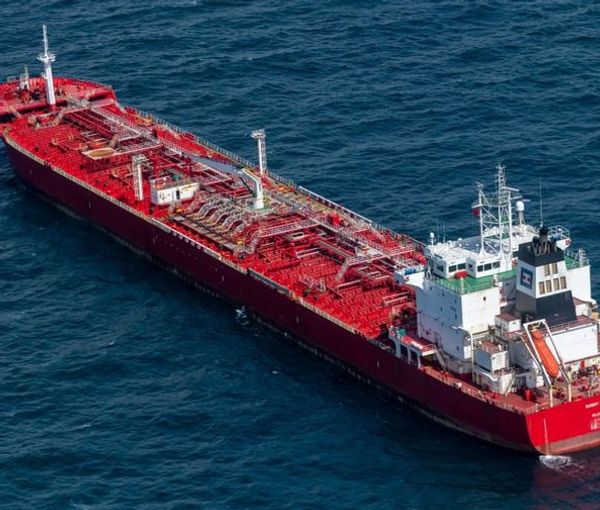“Dark fleet”: Venezuela’s method to defeat American sanctions

Venezuela is deploying a secret weapon to defeat tough US sanctions aimed at blocking the OPEC member's economically crucial crude oil exports: a hidden fleet of tankers using a variety of strategies to hide their exports. Thanks to this, some countries, such as China, are able to import oil at heavy discounts .
Recently the informal fleet that transports Venezuelan oil to key customers, mainly in Asia, has grown significantly with the assistance of Russia and Iran: in fact, since 2020 Iran has emerged as a key strategic ally that is supporting the regime Maduro's autocracy. Tehran provides Venezuela not only with a steady supply of condensate to mix with the country's extra-heavy crude, but also the parts and technical know-how needed to rebuild vital oil infrastructure. That includes access to Iran's fleet of tankers that transport Venezuelan crude to buyers, mostly in Asia, generating hard and urgently needed revenue for a nearly bankrupt Caracas.
The informal fleet, or rather officially “Dark fleet”, is a term for the flotilla of oil tankers and other bulk chemical transport vessels that disguise their identity, location and origin through a variety of techniques. These include concealing the vessel's identity through the use of multiple flags of convenience, deactivating the identification system or using the vessel's transponder to falsify its position.
While ships hide their identities to avoid tracking crude cargoes under US sanctions, they do so to maintain vital insurance coverage, which for many ships is issued by US-based companies. These insurers automatically exclude coverage if the ships they have issued policies to are engaged in activities that violate U.S. sanctions.
In addition to the impact of Washington's tough sanctions on Venezuela's oil exports, the poor condition of national oil company PDVSA's tanker fleet is weighing heavily on Caracas' ability to export crude. According to a recent Reuters article, a PDVSA report stated that more than half of the company's fleet of 22 tankers is so damaged that it is essentially unserviceable and requires immediate repairs or is taken out of service. The report, as reported by Reuters, goes on to say that years of deferred maintenance have left the ships at risk of catastrophic failures such as flooding, fires or sinking. These events all have the potential to cause environmental and other harm.
To get around these constraints, Caracas regularly uses a flotilla of Iranian tankers to ship crude exports to Asia, which is the main destination for US-sanctioned Venezuelan oil . It is China, once a staunch supporter of the Maduro regime, which receives most of the crude oil exported from Venezuela. For 2022, Beijing is estimated to have received 300,000 barrels of Venezuelan oil per day, while for the first eight months of 2023 the figure rose to 430,000 barrels per day. Venezuelan oil purchased from China is typically branded as coming from Malaysia. Iran and India also receive shipments of Venezuelan oil, while Chevron, after receiving US Treasury approval to resume oil extraction from the OPEC member country, is exporting the oil produced to US plants, under the terms of its license.
To further increase exports of sanctioned oil, PDVSA, overcoming the constraints imposed by its current dilapidated fleet of ships, has stepped up efforts to purchase and charter more oil tankers . In this way, the Venezuelan national oil company paid a price significantly higher than the market price for the rental of ships to transport the US-sanctioned oil. PDVSA paid about double the market rate for tanker charters in 2022, according to Reuters, a financial burden that the near-bankrupt Caracas cannot afford. For this reason, Venezuela's national oil company is focusing on expanding its fleet through the purchase of additional tankers. Earlier this year, PDVSA contracted with an Iranian state -controlled shipyard to build two new Aframax tankers, which have the capacity to carry 500,000 to 800,000 barrels of oil.
The Bushehr shipyard where the ships will be built is owned by the Iran Marine Industrial Company, known by its Persian initials SADRA, a company controlled by Iran's Islamic Revolutionary Guard. The considerable assistance provided by Tehran, which is also under severe sanctions from Washington, not only allowed Maduro's autocratic regime to survive, but also PDVSA to significantly increase oil production.
Venezuela's oil production rose from a 2020 record low of 500,000 barrels per day to 730,000 barrels per day in August 2023. While PDVSA has no spare capacity, the ability to maintain current production volumes depends not only on 'Iran maintaining a supply of condensate, but also from emptying storage tanks through shipping existing oil supplies to foreign buyers. For this reason, it is essential that PDVSA continues to expand the fleet of dark tankers capable of transporting US-sanctioned oil from Venezuela to third countries.

Thanks to our Telegram channel you can stay updated on the publication of new Economic Scenarios articles.
The article “Dark fleet”: Venezuela's method to defeat American sanctions comes from Economic Scenarios .
This is a machine translation of a post published on Scenari Economici at the URL https://scenarieconomici.it/dark-fleet-il-metodo-del-venezuela-per-sconfiggere-le-sanzioni-americane/ on Thu, 12 Oct 2023 07:00:24 +0000.
